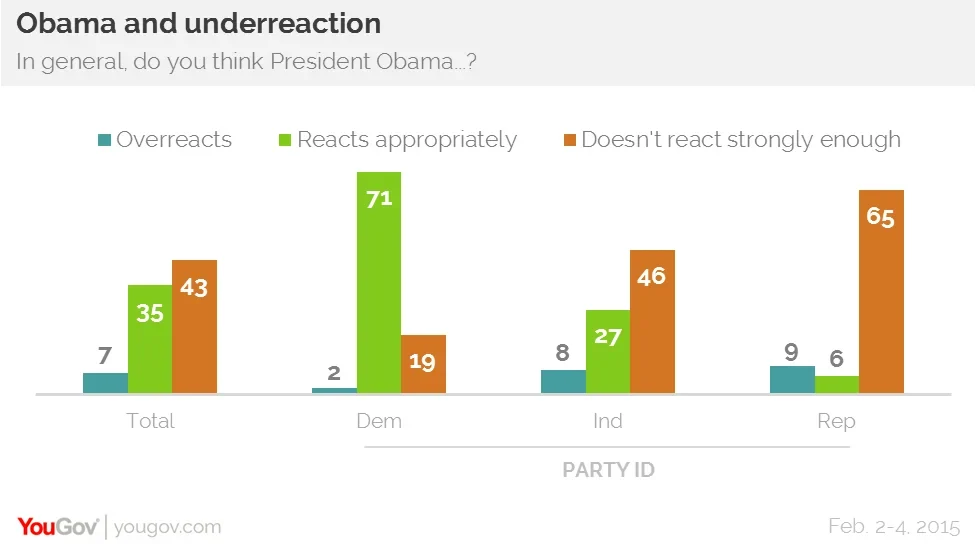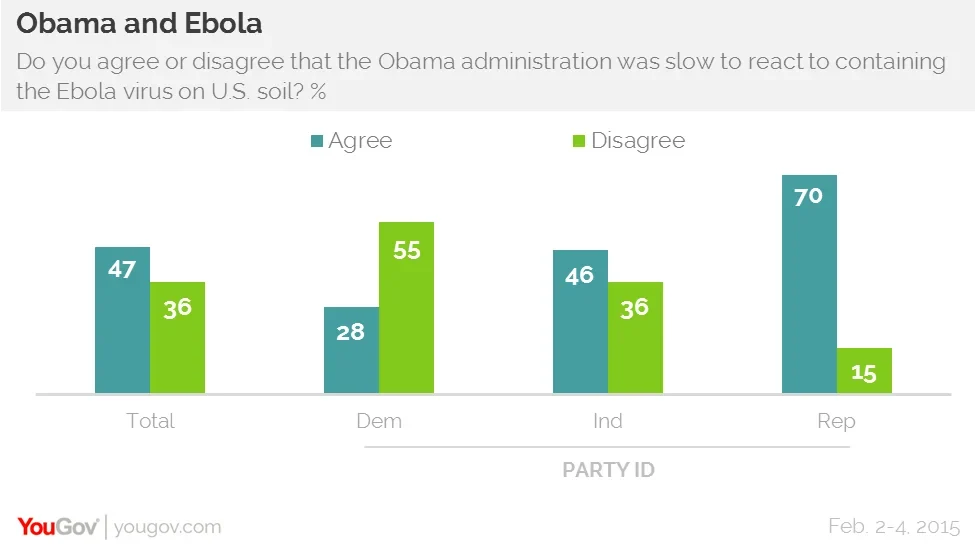Americans tend to think that President Obama does not react strongly enough to events
The Ebola epidemic in West Africa begins to fade away, with only five new cases reported in Liberia in the last week of January, the risk of an outbreak in the United States itself has receded even further and in retrospect some of the more dire predictions now appear alarmist. Obama's initial response, which had been criticized as lacking urgency, largely turned out to be appropriate. This pattern has been similar during other crises, for example after the use of chemical weapons in Syria where instead of launching airstrikes on Assad the Obama administration organized a deal to ensure the regime gave up its chemical weapons program under international supervision.
The latest research from YouGov shows that, on the whole, Americans tend to think that Barack Obama underreacts to events instead of overreact. In fact only 7% of the country thinks that, in general, President Obama overreacts, while 43% think he does not react strongly enough. 35% of Americans, including 71% of Democrats, say that he tends to react appropriately to events. Independents (46%) and most Republicans (65%) say that he doesn't react strongly enough.

Four months ago, as the sense of panic surrounding the crisis reached a fever pitch, President Obama came under fire for not issuing strict orders concerning the outbreak, above all the refusal to endorse quarantines on returning medical personnel who had treated Ebola patients.
Asked specifically about the Ebola crisis, the public tends to agree that the Obama administration was slow to react to containing the spread of the virus in the United States. 47% say that the administration was behind the curve while 36% say that it was not. Most Democrats (55%) say that the administration responded quickly enough, though 28% say that it was. 46% of independents and 70% of Republicans think that the administration was in fact slow to try and contain the deadly disease.









